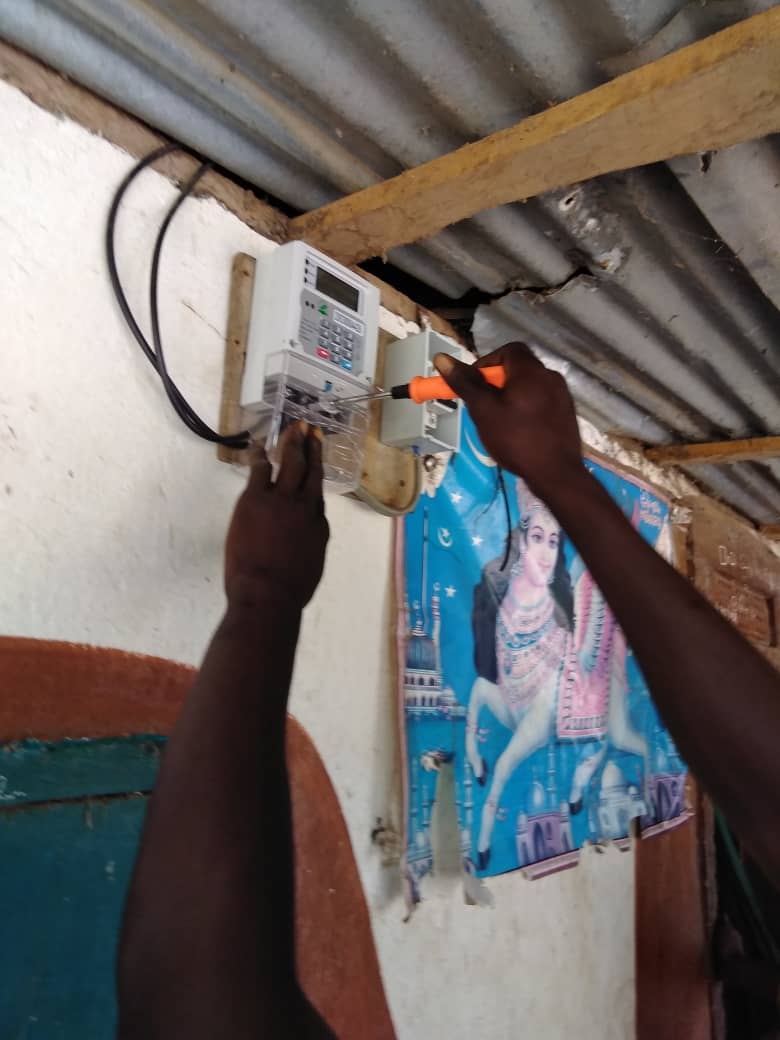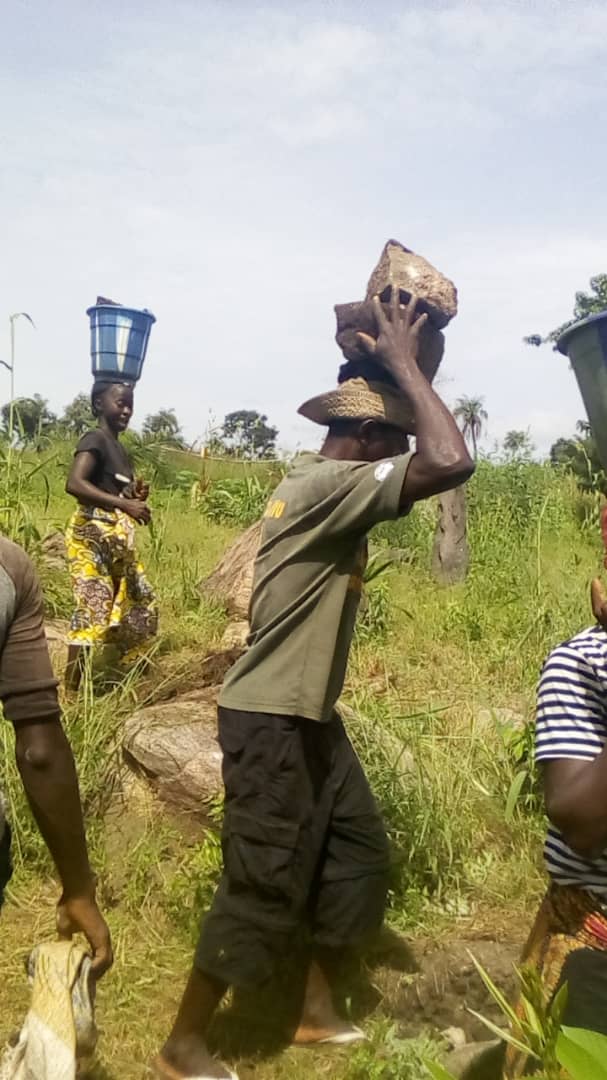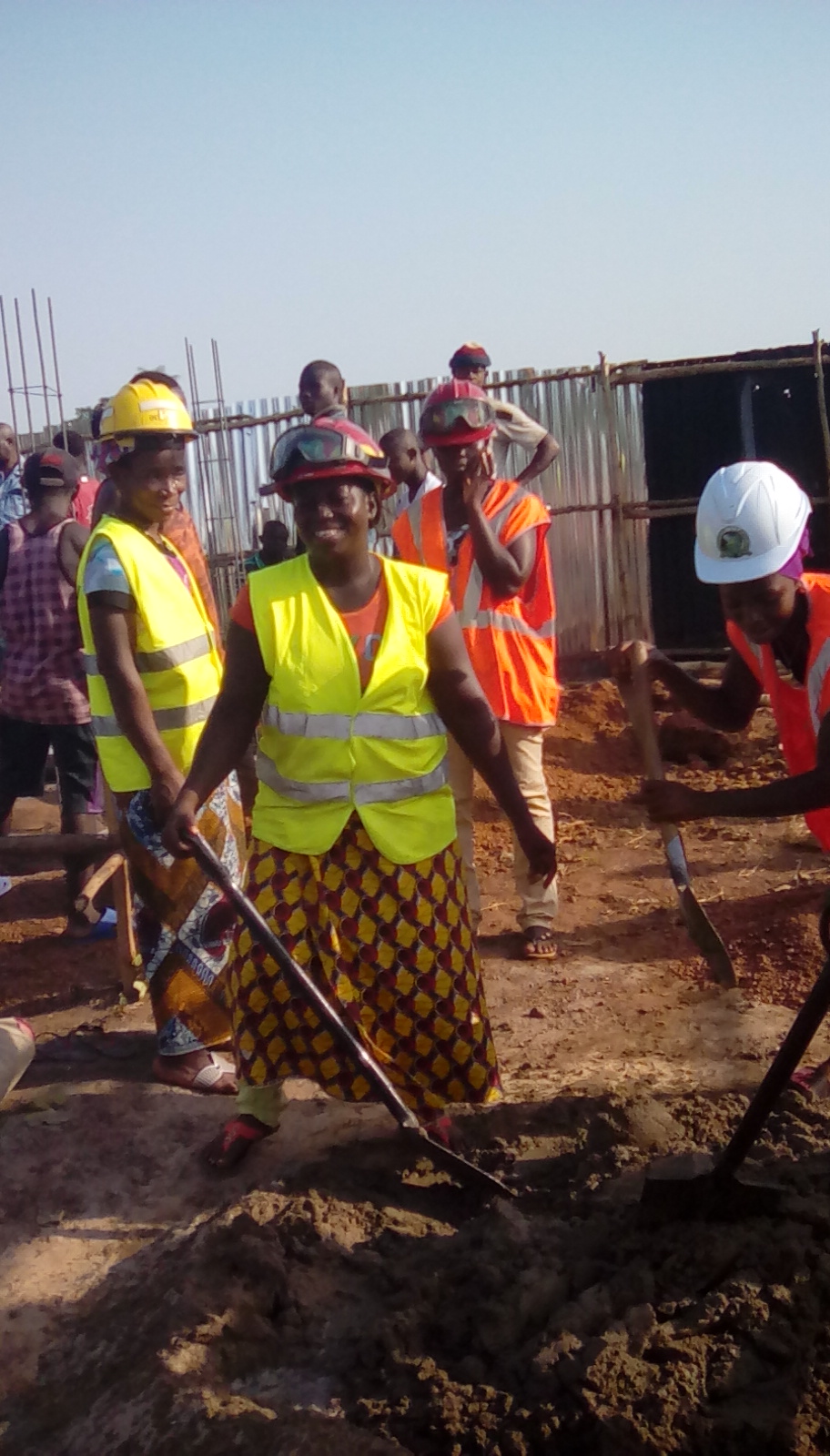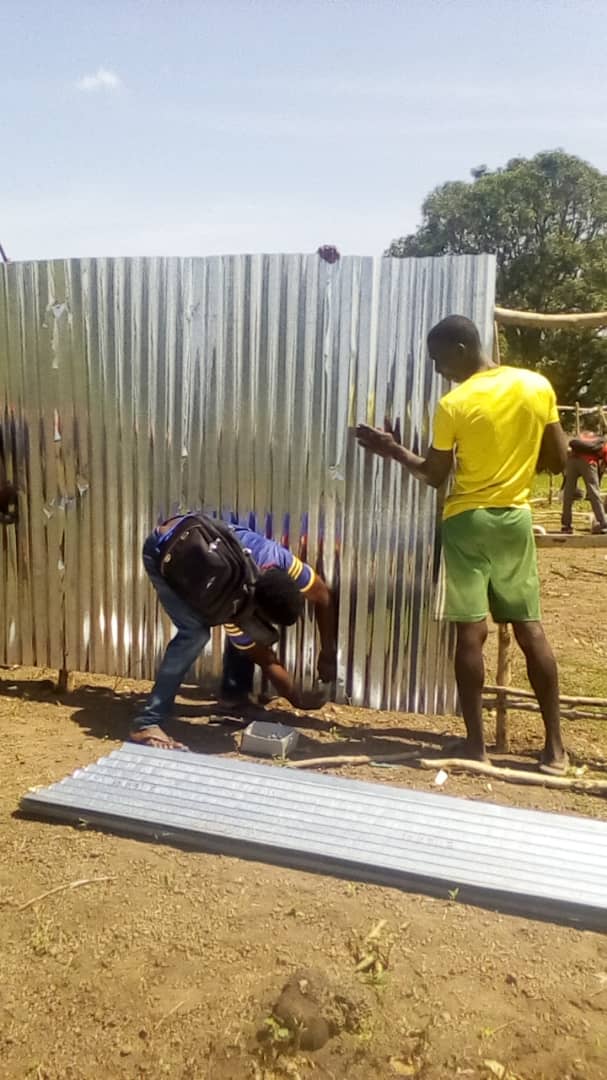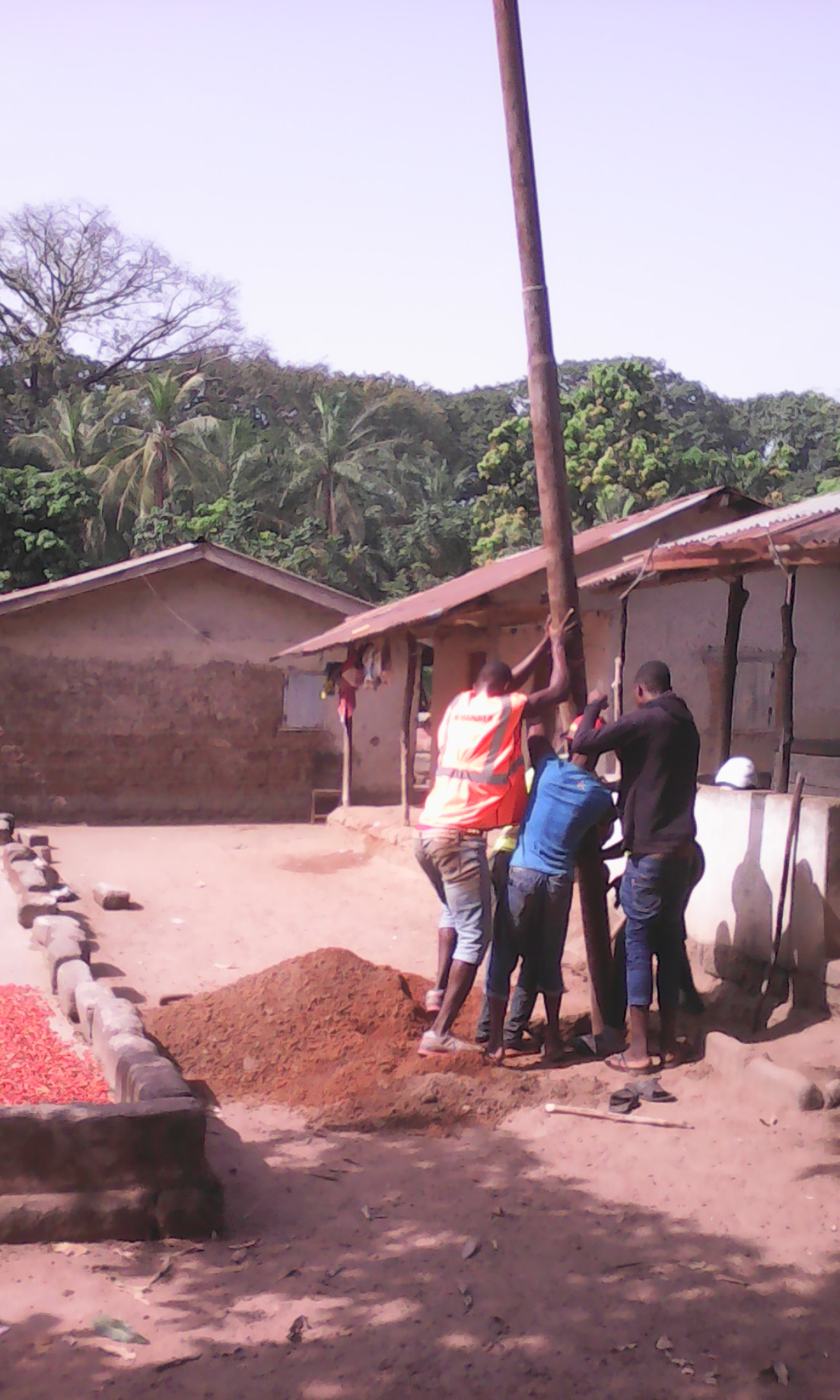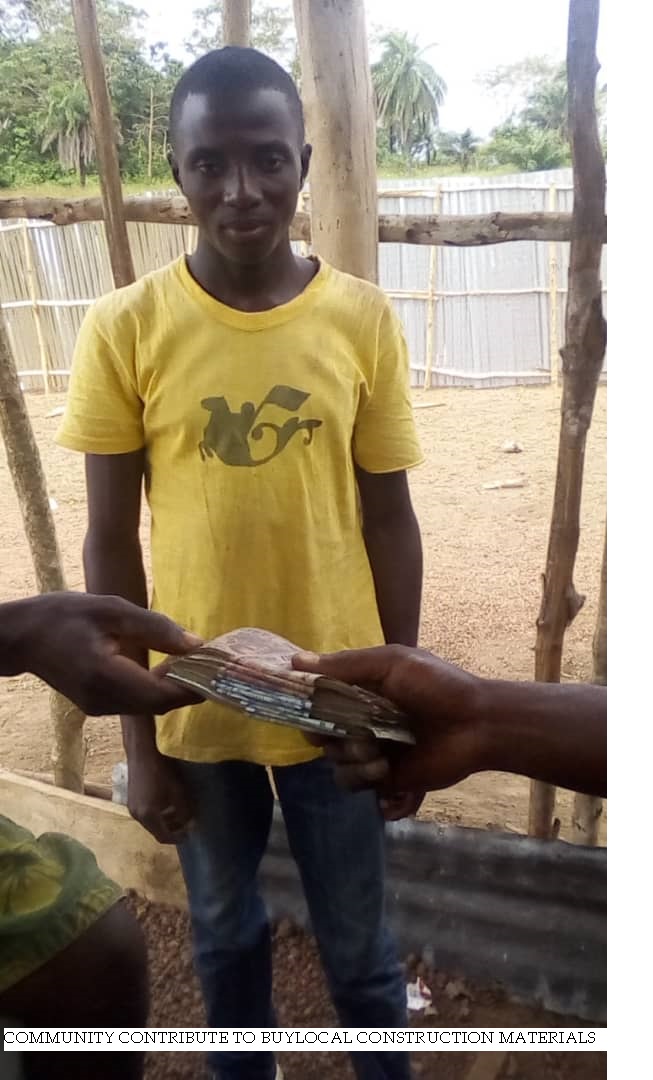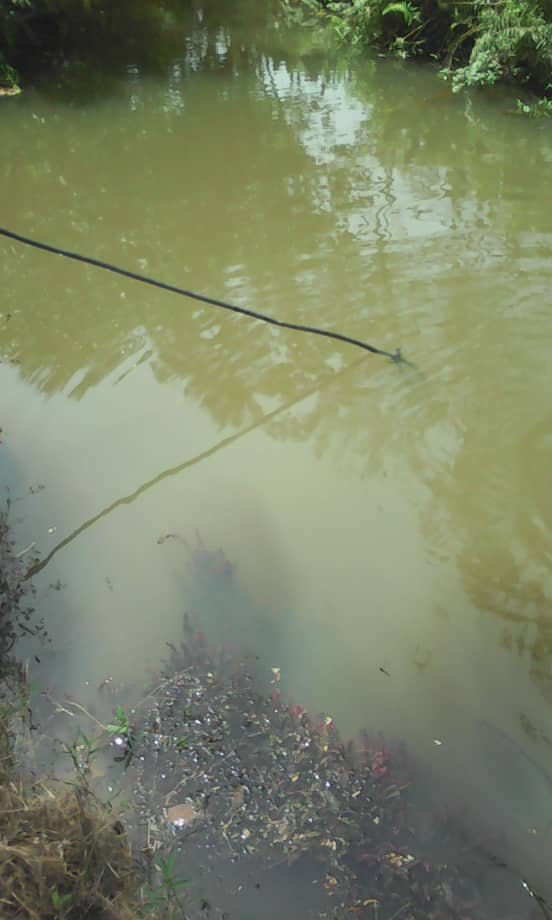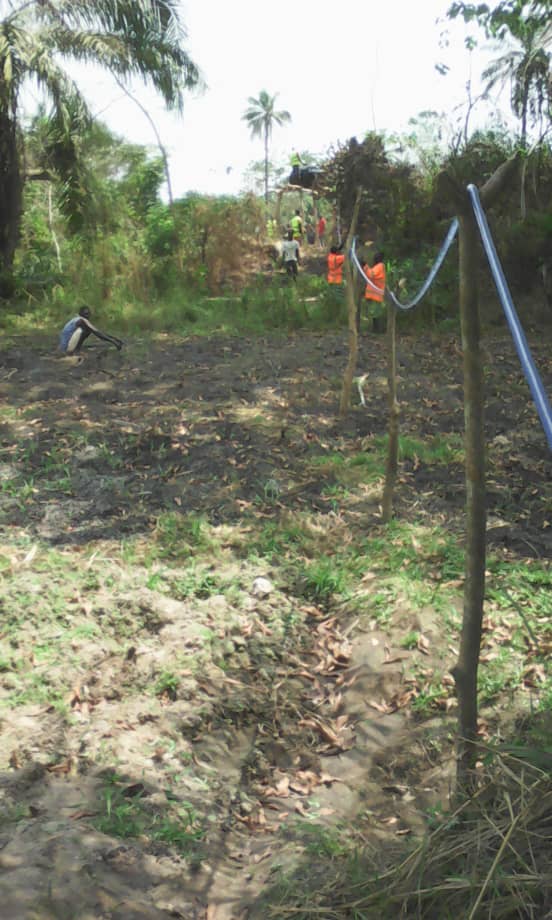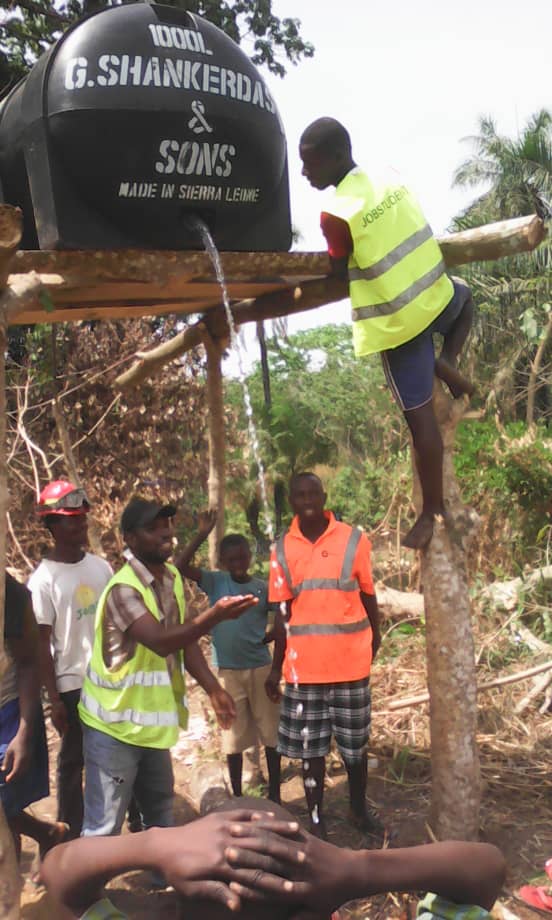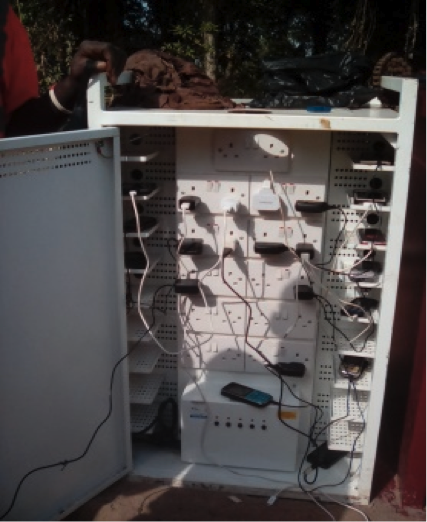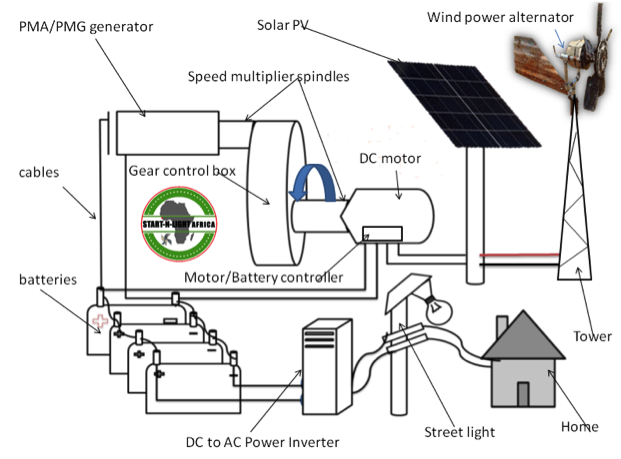Project Summary
Start N’Light Africa is a social enterprise founded in 2017 that aims to supply the rural areas of Sierra Leone with renewable energy. Activities have so far taken place in the Karene district in two villages, where some self-developed plants adapted to the specific conditions have been constructed. The aim is to develop a sustainable business model that makes it possible to expand to other regions.
Project Manager
Country
Sierra Leone
Status
2. Phase
Budget
10.000+ €
Documents
Partners
UNDP – GEF
Hand in Hand Fonds
EWS Elektrizitätswerke Schönau
cdw foundation
ClimaClic
Project goals
Scaling up the Start N’Light terminal and supplying energy to at least another 300 households, also in the surrounding villages.
Construction of a new training centre with the capacity to teach 80 students in parallel in 4 classrooms in basic computer literacy and electrical engineering.
Increase the size of the irrigated field to 1.2 hectares and involve an additional 300 farmers.
Expansion of the micro-enterprise centre and formation of cooperatives for the processing of rice and cassava.
In 2018, we started supporting Mohamed Jah and Alpha Umar Jalloh’s project in West Africa. Mohamed studied and worked in the US for over 10 years, most recently as an electrical engineer for a telecommunications provider. When he returned to his native Sierra Leone a few years ago, he was shocked by the poverty in the countryside. Especially the fact that the children do not even have light to do their homework moved him to work for the affordable electrification of these villages with renewable energy. He founded the social enterprise Start N’Light, and with a team of friends, all with different backgrounds, he developed a novel concept to harness the intense solar radiation at the equator.
Weltweit co-founder Alpha Kaloga, who was working for the Green Climate Fund in Conakry, Guinea at the time, heard about Start N’Light and Mohamed’s need for support and collaboration. Aplha is convinced that the concept and especially the spirit of Start N’Light can be exemplary for the whole region of West Africa, and therefore he decided supervise this project. Alpha, who completed his entire studies in Germany and knows international DC by heart, is our South-North bridge.
The intensity of the sun’s rays (measured in kilowatt hours per square metre per time) near the equator is much higher than it is in Europe. The sun’s rays hit the earth almost perpendicularly, and this means more photons per square metre than in more northern or southern latitudes. However, the day at the equator is quite short compared to a summer day in the temperate zone. So there is intense radiation for a relatively short time. The problem is that the solar modules produced in the north take a relatively long time to charge a battery, because they are designed for comparatively weak solar radiation that lasts a long time in return. To charge a battery quickly, several modules must be connected in parallel, because the speed at which a battery is charged depends on the voltage (volts) of the charging current. The maximum voltage delivered by a solar module is predetermined by the design of the photovoltaic cells and is therefore not variable. However, since the solar current at the equator comes from intense solar radiation, its potential strength (amperes) is relatively high. Now, with the help of a transformer, voltage can be exchanged for strength, but for this, the current must be available as alternating current. The direct current from the module is therefore converted into alternating current by a current transformer, the strength of which is reduced in a transformer in favour of a higher voltage. With this high voltage, a battery can then be charged faster than if the module is connected directly to the battery. You get more out of a module, so to speak, and thus need fewer modules overall.
In a car, the alternator takes over this task. It translates the power from the engine into a high charging voltage. The higher the engine speed, the higher the charge voltage and the faster the car battery is charged. Mohammed’s team also includes car mechanics who take on this principle. Start N’Light combines innovations from electrical engineering with those from automotive engineering to create a completely new concept of a mini power plant adapted to local conditions, which supplies families, farms and a nascent business in the villages with electricity independently of the non-existent power grid and is fed exclusively with renewable energies – in the next step, wind and water power are to be integrated.
What is special about Start N’Light is not so much the plan to bring electricity to rural Africa through island systems – of which there are currently hundreds of projects – but rather that it is an innovation “made in Africa”. Time will tell whether it really works better than products available on the market. In any case, the supporters and partners include experts such as a professor from Fourah Bay College and the Ministry of Energy. The promising results of the first phase of the project have created a real euphoria among Mohamed, his team and the many people involved in the villages, which is a strong indication of self-determined development.
The villages in rural Sierra Leone will not be connected to the public electricity grid in the foreseeable future. In 2017, only 1% of rural areas were supplied with electricity; in the project region, the figure is 0%. Even if the grid were to be expanded, its capacity of 137.2MW cannot meet demand. Power cuts are therefore a daily occurrence. In the villages, electricity is generated by diesel generators, if at all. 95% of the inhabitants in the project area are smallholder farmers, but agriculture is limited to rain-fed farming only, which means that only 6 months of the year can be used productively. Without affordable electricity, no growing business can develop, and young people migrate to the cities where they have few job opportunities due to little to no education in e.g. IT.
With his holistic project approach, Mohamed Jah wants to build Start N’Light into a nationwide supplier of renewable energy in rural areas. His project activities so far have covered two villages and included the establishment of a training centre, the installation of a PV-powered micro-irrigation system for 120 women smallholders, the supply of solar electricity to 200 households and the establishment of a small business park. The project is in its second phase.
Update 2023: The initial euphoria surrounding the innovative PV terminal, which was supposed to enable faster charging, has died down somewhat in Kabomboh because, of course, the conversion from direct current to alternating current and then back again involved considerable efficiency losses and was not profitable in the long run.
But the motivation among the population has remained. Start N’Light has shown the people that they can take their future into their own hands, and that is why the people in Kabomboh and the surrounding villages are still very eager to become active.
This has convinced the cdw foundation from Kassel to enter into a partnership with Mohamed Jah and Start N’Light. The cdw foundation is a strong partner that can support this project in the long term and with technical know-how until it becomes a self-sustaining social enterprise.
We have also been able to bring the ClimaClic Lottery on board. By buying a ticket at this climate lottery, the project is additionally supported.


